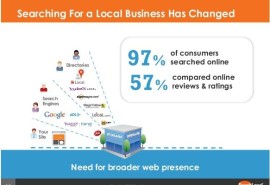The New Pseudo Science

The Viennese philosopher Karl Popper (1902-1994) is remembered for calling Marx and Freud to the carpet for what he called ‘pseudo science’, criticizing their theories for avoiding ‘falsification’ or testing that would render them incorrect.
Popper felt ‘real science’, on the other hand, was always open to falsification. For example, Einstein was open to being wrong in 1919 when he put his general theory of relativity to the test during the eclipse of the sun. Against prevailing odds, Einstein was proven correct while parts of Newton’s 200 year-old theories were debunked.
Both Newton and Einstein tried to prove their theories unassailable with evidence to the contrary, and never claimed their discoveries were absolute truth for all time. For this, they were ‘real scientists’ in the eyes of Popper.
When listening to many Agile consultants at Agile Alliance 2013 in Nashville, I wondered if their theories were as open to falsification as Einstein’s or Newton’s. Though it’s pretty easy to find data showing what went wrong with waterfall (Standish, et al), I didn’t hear much scientific data on the workability of Scrum.
My experience is that Scrum, like Newton’s theories, works most of time, particularly in smaller scenarios. That’s not the case when the methodology is applied to larger programs, or when it approaches large masses (like hoards of executives or millions of dollars).
I am however encouraged by the test-and-verify approach of the Lean Startup movement (and Lean in general). As I understand it, the process incorporates falsification at every step.
What I don’t see in the lexicon of Lean, at least yet, is a codification of what methodologies do work (that is, until falsified). It seems the only methodology of Lean Startup is ‘test until you find something that works’, but no recording of what methodology worked again and again.
Perhaps that will come in time.
Until that too is proved incorrect.
Related Posts
-
Still feels like local search is as dis-aggregated as web se...Sep 09, 2013 / 0 comments
-
In early 1999, my wife Beckie, our newborn son Hank, and I l...Mar 05, 2018 / 0 comments
-
Categories
Recent Posts
CONTACT INFO
Welcome to Coral Mountain Consulting, a Deliverse company. We are glad you found us. If you need to contact us, please call or email Barc directly.
Phone: 1-(626) 644-3857
Office: 2122 New York Drive, Altadena, CA 91001







